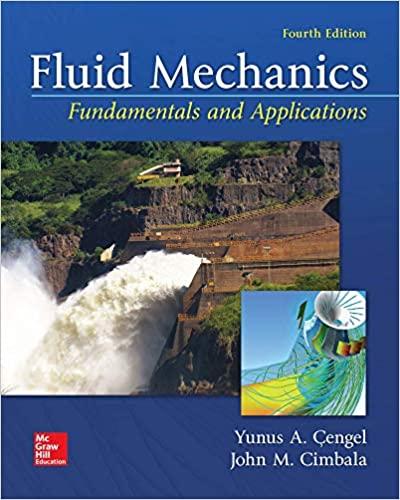The gravitational constant (g) is (9.807 mathrm{~m} / mathrm{s}^{2}) at sea level, but it decreases as you
Question:
The gravitational constant \(g\) is \(9.807 \mathrm{~m} / \mathrm{s}^{2}\) at sea level, but it decreases as you go up in elevation. A useful equation for this decrease in \(g\) is \(g=a-b z\), where \(z\) is the elevation above sea level, \(a=9.807 \mathrm{~m} / \mathrm{s}^{2}\), and \(b=3.32 \times 10^{-6} 1 / \mathrm{s}^{2}\). An astronaut "weighs" \(80.0 \mathrm{~kg}\) at sea level. [Technically this means that his/her mass is \(80.0 \mathrm{~kg}\).] Calculate this person's weight in \(\mathrm{N}\) while floating around in the International Space Station \((z=354 \mathrm{~km})\). If the Space Station were to suddenly stop in its orbit, what gravitational acceleration would the astronaut feel immediately after the satellite stopped moving? In light of your answer, explain why astronauts on the Space Station feel "weightless."
Step by Step Answer:

Fluid Mechanics Fundamentals And Applications
ISBN: 9781259696534
4th Edition
Authors: Yunus Cengel, John Cimbala





